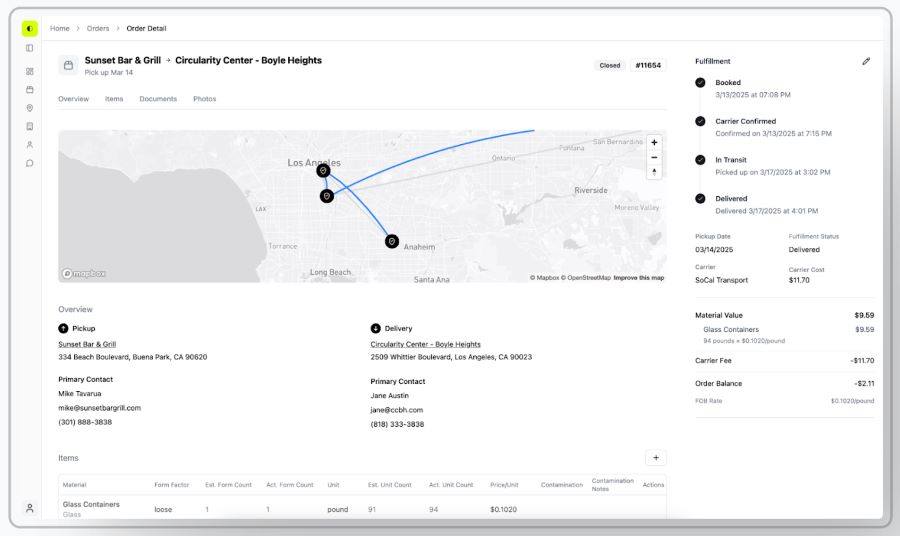
Recycled material-focused software platform Replenysh allows end users to have greater visibility into their sourcing. | Photo courtesy M13
Replenysh, a company providing software that connects recycled material generators with processors and end users, has raised $8 million in capital for expansion as it aims to fix what a company leader calls a “trust gap” in the U.S. recycling system.
The California-headquartered company recently announced the funding, led by venture capital firm M13, and described it as part of furthering the company’s goal of connecting brands with recycled content. The software from Replenysh provides a way for material generators and buyers to arrange and fulfill recycled material shipments, ultimately helping brands buy recycled content with full visibility into where it was generated and processed.
“Our platform functions like (Amazon Web Services) does for computing resources – a reliable, scalable infrastructure that transforms how businesses access critical resources,” Replenysh founder and CEO Mark Armen said in a statement, adding that being able to verify recycled content with confidence represents “a game-changer for manufacturing at scale.”
“For brands and manufacturers, recycled content is no longer optional – it’s essential,” he added in a write-up outlining the recent funding.
“Regulatory mandates, environmental commitments, uncertain global markets, and consumer expectations all demand it,” Armen wrote. “Yet the fundamental challenge remains: reliable access to high-quality recycled materials at scale.”
During a presentation at SPC Impact early this month, Armen laid out reasons the current U.S. materials management system is not living up to its potential.
Most problems stem from a lack of appropriate infrastructure and technology, and everything else builds from there, he explained. The U.S. materials management infrastructure was built around landfilling materials and has not adequately adapted to recycling at scale over the last several decades, according to Armen.
“The painful truth is, your sustainability investments are undermined every day by infrastructure that was built to put stuff in a hole,” he told the audience of largely brand owners. “It was built for disposal.”
That inadequate infrastructure is responsible for an increasingly negative perception of recycling, a “trust gap” where consumers are often right to be skeptical of where materials go, Armen said. And it’s bad for brands, who are facing consumer and media scrutiny.
“Every sustainability claim you make without verification is essentially a ticking time bomb – your packaging promises something the supply chain can’t deliver,” he said.
Armen relayed a conversation with a major retailer a few months ago, after national media coverage highlighted the retailer’s “recyclable” packaging instead making its way to a landfill. That’s just one of numerous media stories highlighting failures in the recycling system, and it won’t be the last, Armen said.
He views the Replenysh platform as providing several major tools to improve the recycled material procurement system, including greater visibility into the source of recycled materials that can enable more accurate predictions about future availability, streamlined sourcing logistics, and a way to generate data that is increasingly important for regulatory compliance and, more broadly, confidence in recycling claims.
Replenysh launched in 2020 and previously received $2 million in venture capital. It has also worked with specific community collection programs, including managing the technology and network operations of Cans for Cash, a program that aims to increase beverage can recovery in communities in states without bottle deposits or strong curbside collection programs. That program launched in Arkansas last year with plans to expand to Florida, Illinois and Mississippi.

